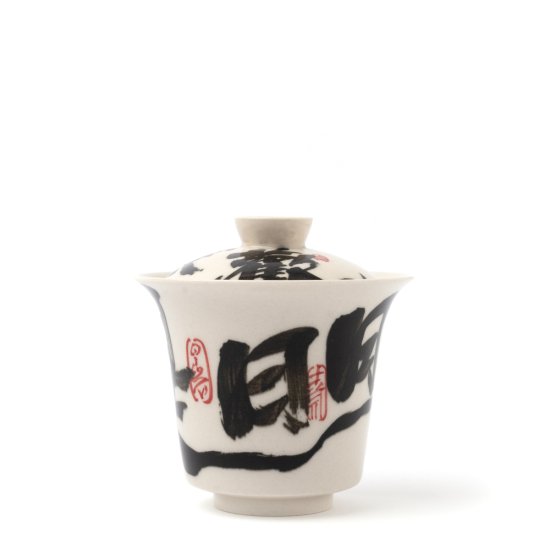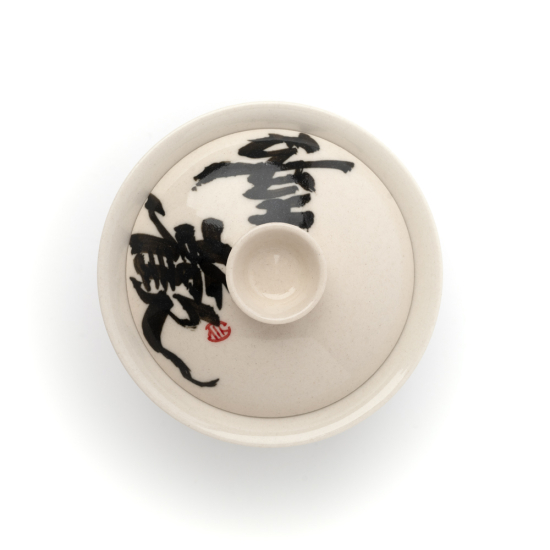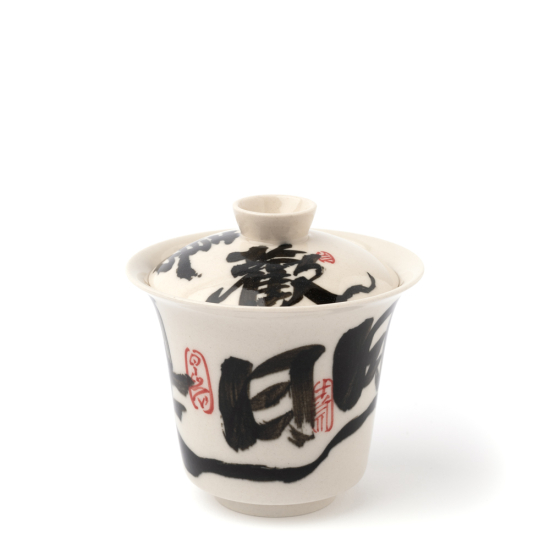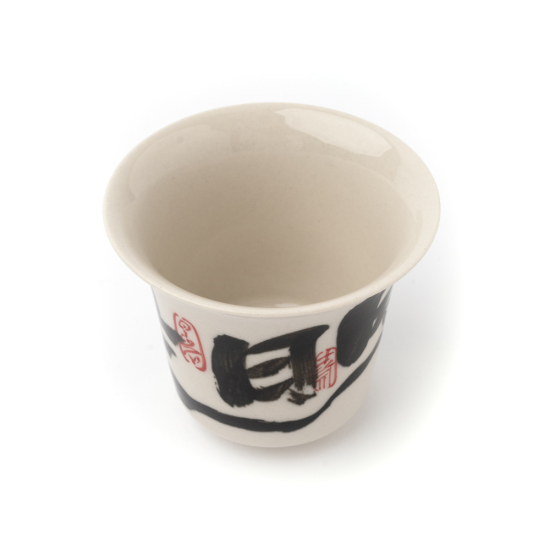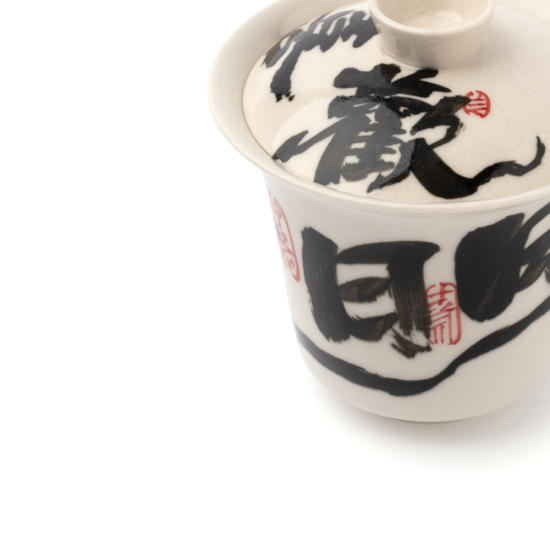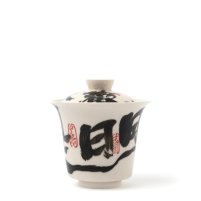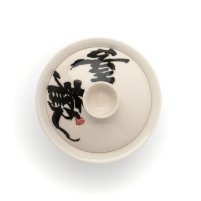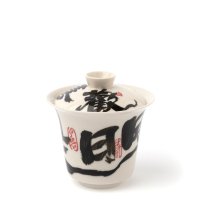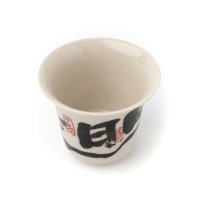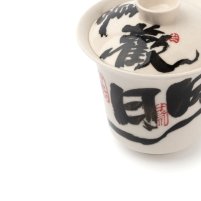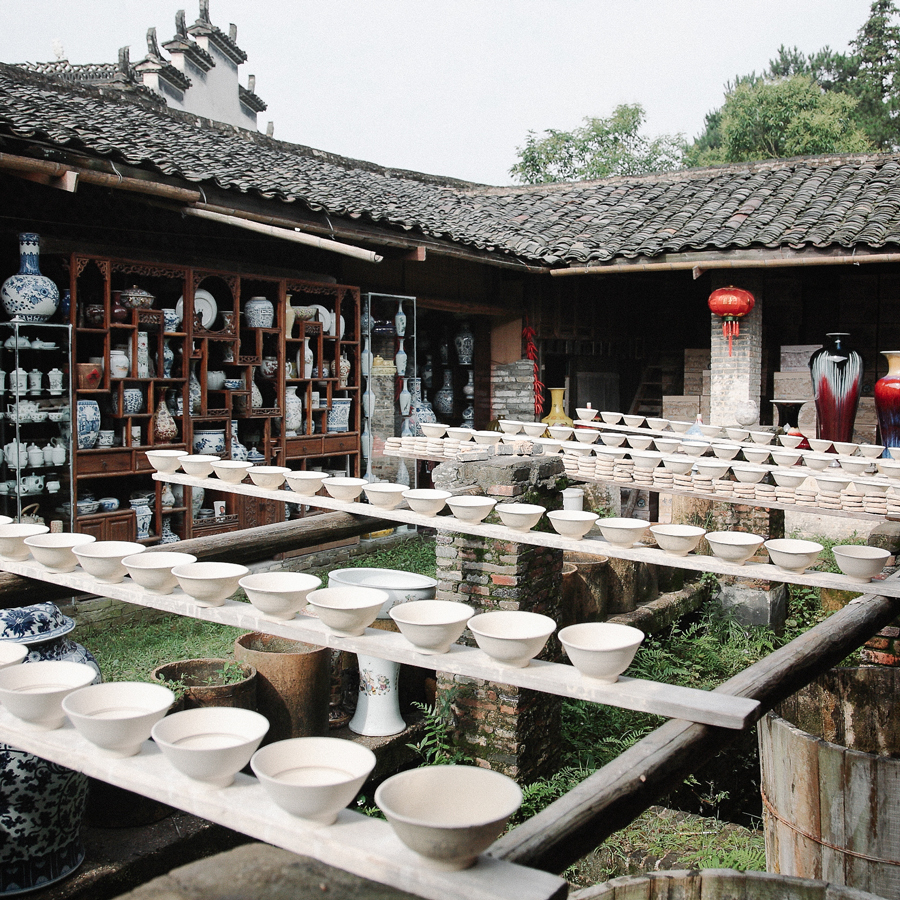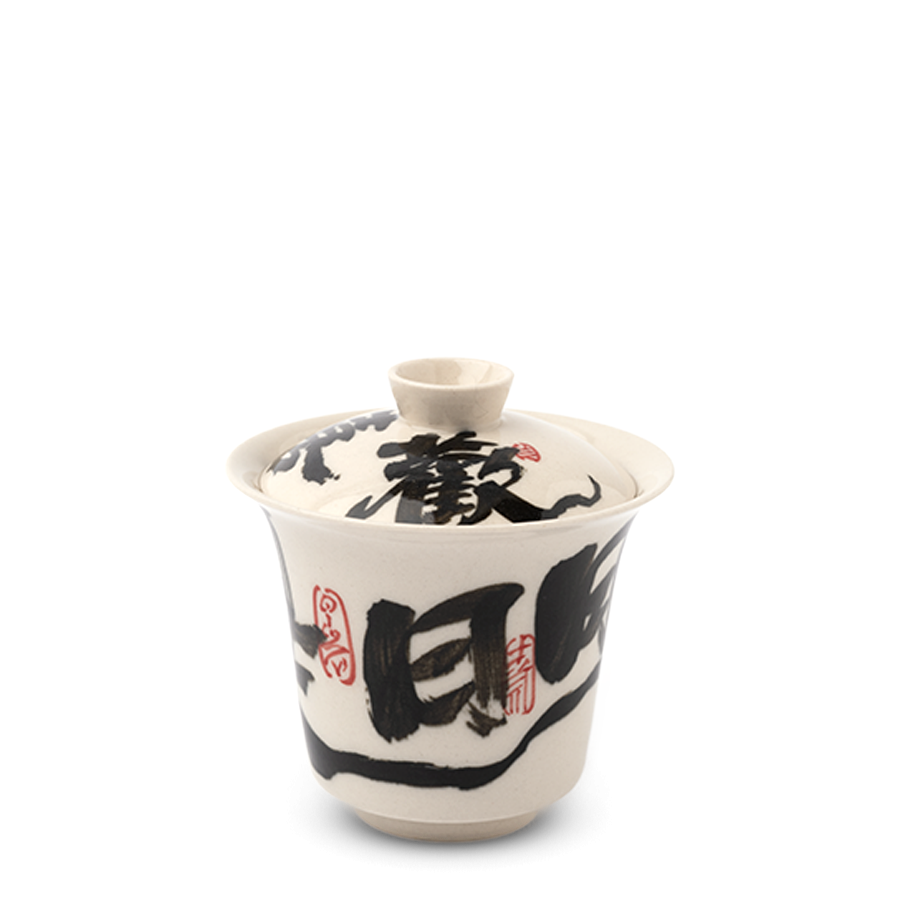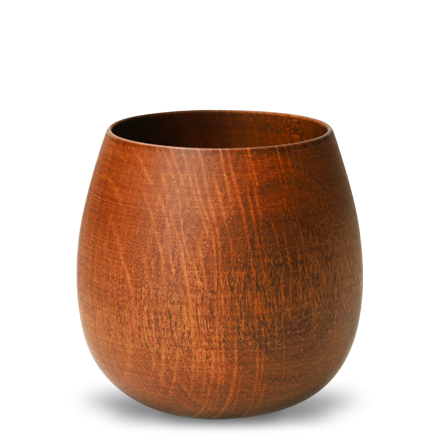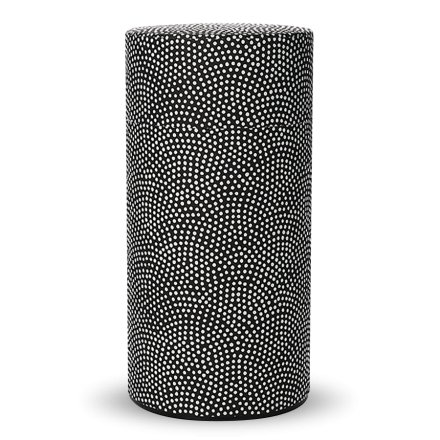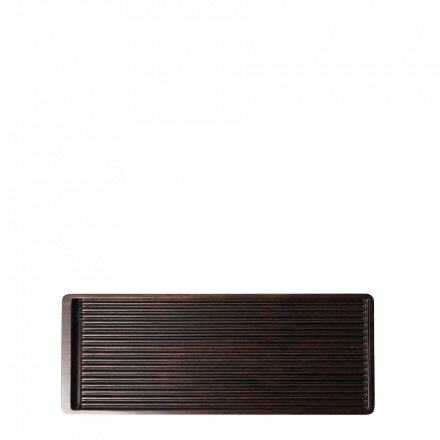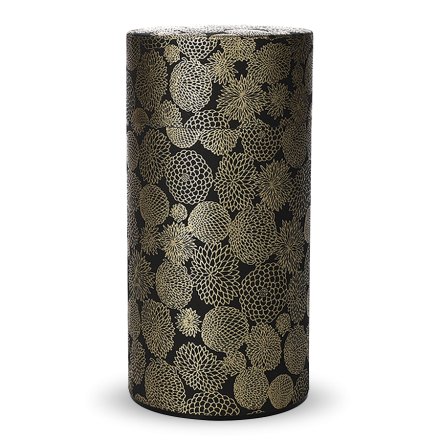Preparing tea in a Gaiwan is simple, but to handle it carefully may require some practice:
- First, preheat the utensils: pour hot water into the Gaiwan bowl, transferring the water into teacups if desired, then discard the water.
- Next, add the tea leaves to the bowl: around 20% full for stronger teas and up to 60% for more delicate teas.
- Slowly pour hot water over the leaves to just below the brim, then stir the leaves a little with the lid before using it to close the Gaiwan. Allow the tea to steep.
- When ready, slightly angle the lid to create a small gap, then hold the bowl at the edges with one hand while keeping the lid secure with your index finger to pour the tea into cups or a Chahai tea pitcher, or simply drink straight from the Gaiwan, using the lid to block the leaves.
If the tea is suitable for multiple infusions, don’t miss out on a second or third brew! For each subsequent brew make sure the water is a little hotter and the steep time shorter to get the most out of the leaves.



